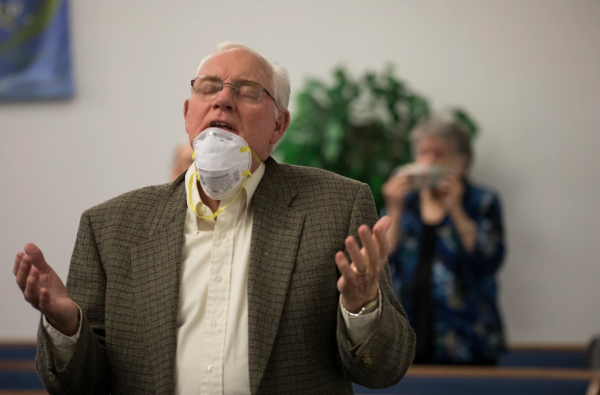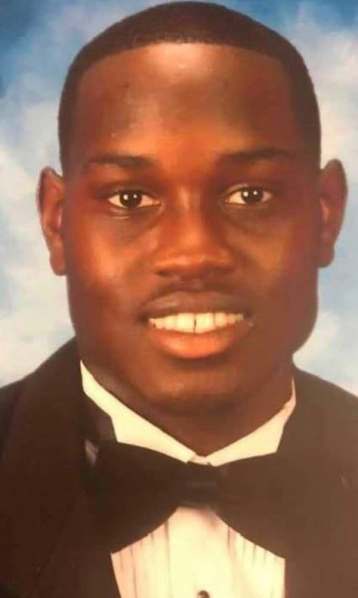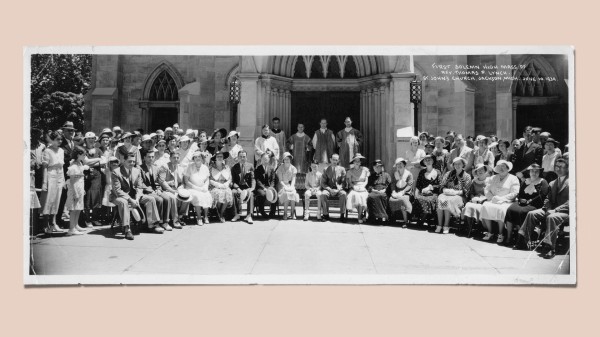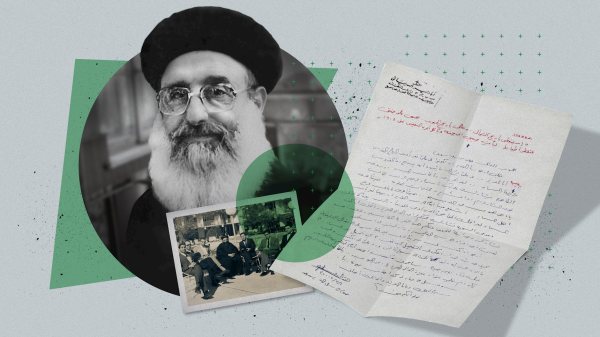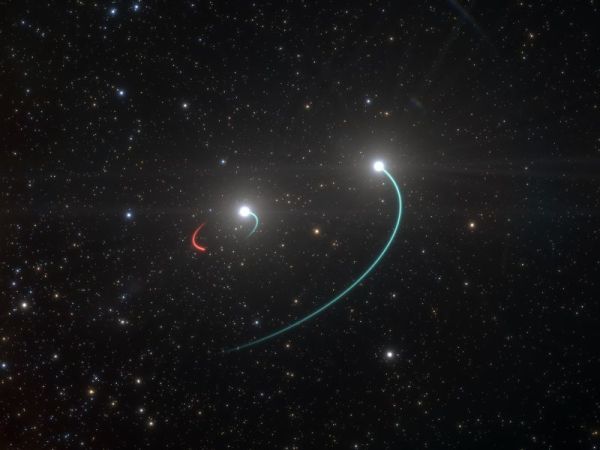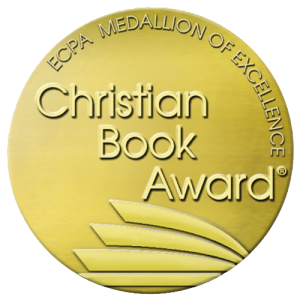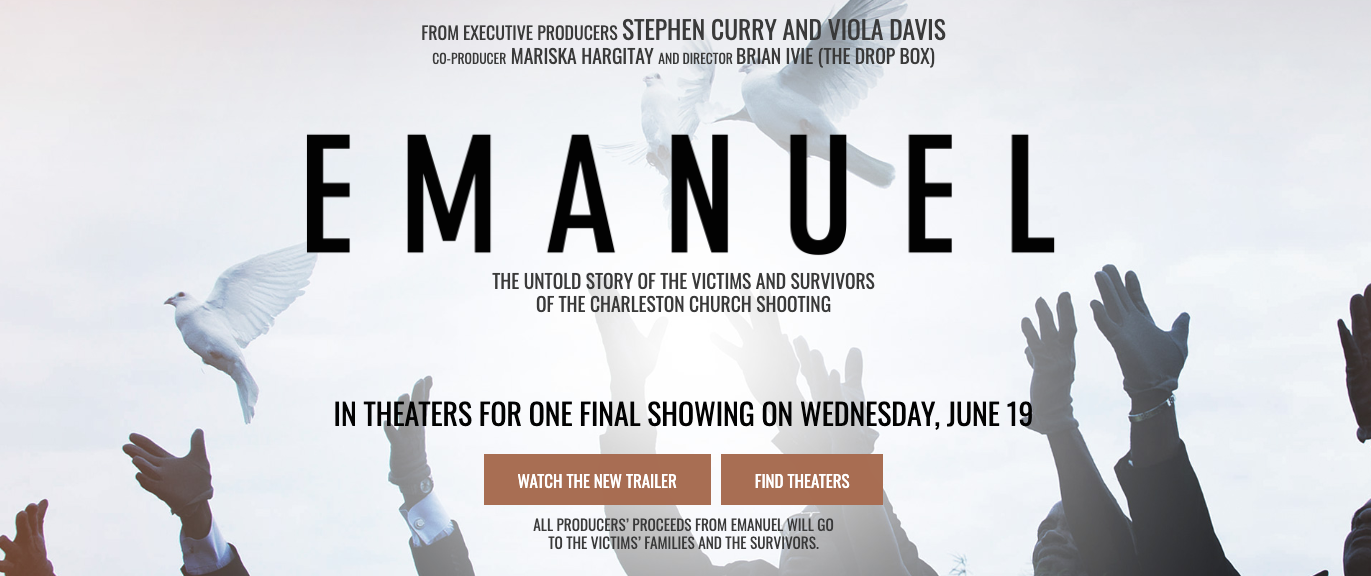“The Weekend Wanderer” is a weekly curated selection of news, news, stories, resources, and media on the intersection of faith and culture for you to explore through your weekend. Wander through these links however you like and in any order you like. Disclaimer: I do not necessarily agree with all the views expressed within these articles but have found them thought-provoking.
 “One in Four Pastors Plan to Retire Before 2030” – David Roach in Christianity Today: “Olive Baptist Church in Pensacola, Florida, has gotten serious about raising up a new generation of pastors. Normally, the congregation produces one or two young people every couple of years who feel a call. Right now, however, 12 young men are preparing to enter pastoral ministry. Ted Traylor, who has led the church for 33 years, meets with them weekly. ‘You’ve got to get old and see that you’ve got to have someone else coming,’ Traylor said with a laugh. ‘I really do laugh at that, but it was a reality in my life. I’m now 69 years old, and I take a greater responsibility for the coming generation.’ Research released this month from the Barna Group suggests more baby boomer pastors need to follow suit. America’s churches are struggling to find a new generation of pastors as the current generation prepares to step aside, according to the research. The graying of America’s pastors isn’t a new phenomenon, but it has become more pronounced. In 2022, just 16 percent of Protestant senior pastors were 40 years old or younger. The average age of a pastor is 52. Thirty years ago, 33 percent of US pastors were under 40, and the median age was 44.”
“One in Four Pastors Plan to Retire Before 2030” – David Roach in Christianity Today: “Olive Baptist Church in Pensacola, Florida, has gotten serious about raising up a new generation of pastors. Normally, the congregation produces one or two young people every couple of years who feel a call. Right now, however, 12 young men are preparing to enter pastoral ministry. Ted Traylor, who has led the church for 33 years, meets with them weekly. ‘You’ve got to get old and see that you’ve got to have someone else coming,’ Traylor said with a laugh. ‘I really do laugh at that, but it was a reality in my life. I’m now 69 years old, and I take a greater responsibility for the coming generation.’ Research released this month from the Barna Group suggests more baby boomer pastors need to follow suit. America’s churches are struggling to find a new generation of pastors as the current generation prepares to step aside, according to the research. The graying of America’s pastors isn’t a new phenomenon, but it has become more pronounced. In 2022, just 16 percent of Protestant senior pastors were 40 years old or younger. The average age of a pastor is 52. Thirty years ago, 33 percent of US pastors were under 40, and the median age was 44.”
 “Shepherding from the Margins: The Black Preacher and White Supremacy” – John C. Richards at IVI: “The Black pulpit poses the greatest threat to White supremacy and racism in America. From its inception, the Black pulpit was forged in the thick boscage of silent sanctuaries surrounding Southern plantations. Hush harbors were homiletical havens for men and women of faith to proclaim faith in the God of the oppressed. This sacred space has long been a symbol of resistance to oppression and served as the platform for the preached word to a people who found themselves sojourners in a strange land. And standing tall in pulpits across America through the years has been the Black preacher—serving as the moral compass in a culture that continues to lose its true north. The Black preacher has always stared White supremacy in its face and proclaimed it out of step with the Gospel of Christ.¹ Despite these truths, the Black prophetic preaching tradition has historically teetered on the scales of anonymity and lived in the academic and cultural margins. As Wake Forest University School of Divinity Dean Jonathan Walton notes in Watch This!: The Ethics and Aesthetics of Black Televangelism: ‘For a race of people who suffered 244 years of chattel slavery, another century of legalized racial apartheid, and the continued vestiges of white supremacy on this nation’s soil, joining the mainstream has proven to be an elusive and illusory goal.’ And the goal of Black preaching all along wasn’t to join the mainstream. It was to stand outside the fray and declare what thus saith the Lord. The oral tradition of Black preaching served as the only means to confront racial injustices short of armed resistance. Living in the margins has led to many unfair and unhelpful presuppositions about the Black preaching tradition. Disingenuous caricatures in mainstream culture often mischaracterize Black preaching. Those caricatures ignore Black preaching’s long history of orthodoxy and orthopraxy. Both the academy and culture are responsible for these unhelpful caricatures. It is our responsibility to stand and offer a helpful corrective.”
“Shepherding from the Margins: The Black Preacher and White Supremacy” – John C. Richards at IVI: “The Black pulpit poses the greatest threat to White supremacy and racism in America. From its inception, the Black pulpit was forged in the thick boscage of silent sanctuaries surrounding Southern plantations. Hush harbors were homiletical havens for men and women of faith to proclaim faith in the God of the oppressed. This sacred space has long been a symbol of resistance to oppression and served as the platform for the preached word to a people who found themselves sojourners in a strange land. And standing tall in pulpits across America through the years has been the Black preacher—serving as the moral compass in a culture that continues to lose its true north. The Black preacher has always stared White supremacy in its face and proclaimed it out of step with the Gospel of Christ.¹ Despite these truths, the Black prophetic preaching tradition has historically teetered on the scales of anonymity and lived in the academic and cultural margins. As Wake Forest University School of Divinity Dean Jonathan Walton notes in Watch This!: The Ethics and Aesthetics of Black Televangelism: ‘For a race of people who suffered 244 years of chattel slavery, another century of legalized racial apartheid, and the continued vestiges of white supremacy on this nation’s soil, joining the mainstream has proven to be an elusive and illusory goal.’ And the goal of Black preaching all along wasn’t to join the mainstream. It was to stand outside the fray and declare what thus saith the Lord. The oral tradition of Black preaching served as the only means to confront racial injustices short of armed resistance. Living in the margins has led to many unfair and unhelpful presuppositions about the Black preaching tradition. Disingenuous caricatures in mainstream culture often mischaracterize Black preaching. Those caricatures ignore Black preaching’s long history of orthodoxy and orthopraxy. Both the academy and culture are responsible for these unhelpful caricatures. It is our responsibility to stand and offer a helpful corrective.”
 “Gun violence from Texas to Nashville should call Americans to prayer − and to action” – Daniel Darling in USA Today: “On Friday night near Cleveland, Texas, police say, a man with an AR-15 shot to death five of his neighbors, including a 9-year-old boy. On Monday afternoon, police found seven people dead, including two missing teenage girls, at a home in the small town of Henryetta, Oklahoma. As a nation, we are only weeks removed from the shooting at a church school in Nashville, Tennessee and the shooting at a bank in Louisville, Kentucky. And those are only crimes that have captured national attention. In cities across the country, citizens live in fear of their lives, besieged by violence on the streets and in homes, workplaces, schools and churches. The Covenant School shooting in Nashville was personal for our family. We lived in Nashville for 10 years and love that growing metro with a small-town heart. A dear friend’s children attend Covenant School. A colleague at Texas Baptist College, affiliated with the seminary where I work, lost a nephew. And my wife was part of a prayer group of moms that included the Covenant pastor’s wife. It’s hard to comprehend the depravity that motivates someone to gun down people in cold blood. For every shooting, there are survivors whose lives will never be the same. Just read this haunting profile of the victims of the Sulphur Springs, Texas shooting from five years ago. Unfortunately, after every mass shooting there is a predictable cycle where Democrats and Republicans blame each other, scoring quick rhetorical points that offer political catharsis but few solutions. The exception was the massacre in Uvalde, Texas, which resulted in bipartisan federal legislation that included funding for mental health, funding for state red flag laws, tightening laws on gun trafficking, funding for existing school safety programs and a few other laws tightening gun purchases. But clearly, we have more work to do to reduce incidents of violence and to make our communities safe. I’m a conservative, but I recognize that this multi-layered, complicated epidemic will require both political parties to work together.”
“Gun violence from Texas to Nashville should call Americans to prayer − and to action” – Daniel Darling in USA Today: “On Friday night near Cleveland, Texas, police say, a man with an AR-15 shot to death five of his neighbors, including a 9-year-old boy. On Monday afternoon, police found seven people dead, including two missing teenage girls, at a home in the small town of Henryetta, Oklahoma. As a nation, we are only weeks removed from the shooting at a church school in Nashville, Tennessee and the shooting at a bank in Louisville, Kentucky. And those are only crimes that have captured national attention. In cities across the country, citizens live in fear of their lives, besieged by violence on the streets and in homes, workplaces, schools and churches. The Covenant School shooting in Nashville was personal for our family. We lived in Nashville for 10 years and love that growing metro with a small-town heart. A dear friend’s children attend Covenant School. A colleague at Texas Baptist College, affiliated with the seminary where I work, lost a nephew. And my wife was part of a prayer group of moms that included the Covenant pastor’s wife. It’s hard to comprehend the depravity that motivates someone to gun down people in cold blood. For every shooting, there are survivors whose lives will never be the same. Just read this haunting profile of the victims of the Sulphur Springs, Texas shooting from five years ago. Unfortunately, after every mass shooting there is a predictable cycle where Democrats and Republicans blame each other, scoring quick rhetorical points that offer political catharsis but few solutions. The exception was the massacre in Uvalde, Texas, which resulted in bipartisan federal legislation that included funding for mental health, funding for state red flag laws, tightening laws on gun trafficking, funding for existing school safety programs and a few other laws tightening gun purchases. But clearly, we have more work to do to reduce incidents of violence and to make our communities safe. I’m a conservative, but I recognize that this multi-layered, complicated epidemic will require both political parties to work together.”
 “The Universal & Neon God: Four Questions Concerning The Internet – part one” and “Neon God: Four Questions Concerning The Internet – part two” – Paul Kingsnorth at The Abbey of Misrule: “The Internet and its consequences have been a disaster for the human race. This is an extreme statement, but I’m in an extreme mood. If I had the energy, I suppose I could fill a hundred pages trying to prove it. I could write about what online reading has done to concentration spans, what smartphone use has done to social mores, how the brains of young children have been rewired by tablets and screens. I could write about social credit systems or facial scans or vaccine passports or online porn or cyber-bullying or cobalt mines or the decline of journalism or the death of the high street. So much content is on offer – and it’s all free! Still, what would be the point? Whole books have been written already, and by now you either agree or you don’t. And nothing I can say here would be anything like as extreme as the impact that the digital revolution has had on our cultures, minds and souls in just a few short years. Everything has changed, and yet the real changes are only just beginning. By the time they are finished, unless we pay attention, we may barely be human at all. So I won’t try to prove anything. Instead I will devote this essay to asking a question that has stalked me for years. It’s such a big question, in fact, that I am breaking this already long essay into two parts, and dividing the question itself into four smaller inquiries, in the hope that this way it will be more digestible, to me if no-one else. What I want to know is this: what force lies behind the screens and wires of the web in which we are now entangled like so many struggling flies, and how we can break free of it. In short: What is this thing? And how should it be faced?”
“The Universal & Neon God: Four Questions Concerning The Internet – part one” and “Neon God: Four Questions Concerning The Internet – part two” – Paul Kingsnorth at The Abbey of Misrule: “The Internet and its consequences have been a disaster for the human race. This is an extreme statement, but I’m in an extreme mood. If I had the energy, I suppose I could fill a hundred pages trying to prove it. I could write about what online reading has done to concentration spans, what smartphone use has done to social mores, how the brains of young children have been rewired by tablets and screens. I could write about social credit systems or facial scans or vaccine passports or online porn or cyber-bullying or cobalt mines or the decline of journalism or the death of the high street. So much content is on offer – and it’s all free! Still, what would be the point? Whole books have been written already, and by now you either agree or you don’t. And nothing I can say here would be anything like as extreme as the impact that the digital revolution has had on our cultures, minds and souls in just a few short years. Everything has changed, and yet the real changes are only just beginning. By the time they are finished, unless we pay attention, we may barely be human at all. So I won’t try to prove anything. Instead I will devote this essay to asking a question that has stalked me for years. It’s such a big question, in fact, that I am breaking this already long essay into two parts, and dividing the question itself into four smaller inquiries, in the hope that this way it will be more digestible, to me if no-one else. What I want to know is this: what force lies behind the screens and wires of the web in which we are now entangled like so many struggling flies, and how we can break free of it. In short: What is this thing? And how should it be faced?”
 “Like Hair in a Biscuit” – Fred Smith in The Round Table: “The Kentucky River winds past Port Royal in Henry County and Wendell’s farm before it empties into the Ohio River below Cincinnati where I grew up. It was downstream in my life when I was first introduced to Wendell’s work and without our ever meeting in person his work has been a part of my life and work ever since. All of us have origins or we can call them headwaters. We come from someplace. We have a place of beginning. It may be a spot on a map or something that from the start has defined the way we look at life. I think Wendell’s headwater is love. Not the romantic or always changing love we associate with falling or being in love. It is the enduring love people share over a lifetime with all of their glory and foibles. It is the love of a particular place. It is the love of a patch of land and the love that is grateful and accepts responsibility for the gifts of nature. It is the love of clarity. It is not flighty or fickle but what Wendell has called competent love. The love that comes from knowing a piece of land, a person or a craft. ‘It is love that leads us toward particular knowledge, and it helps us to learn what we need to know. It leads us toward vocation, the work we truly want to do, are born to do, and therefore must learn to do well. I am talking about the hardworking familial and neighborly love that commits itself and hangs on like hair in a biscuit. This is love that can be enacted, whether or not it is felt.’ From love flows the sense of belonging.”
“Like Hair in a Biscuit” – Fred Smith in The Round Table: “The Kentucky River winds past Port Royal in Henry County and Wendell’s farm before it empties into the Ohio River below Cincinnati where I grew up. It was downstream in my life when I was first introduced to Wendell’s work and without our ever meeting in person his work has been a part of my life and work ever since. All of us have origins or we can call them headwaters. We come from someplace. We have a place of beginning. It may be a spot on a map or something that from the start has defined the way we look at life. I think Wendell’s headwater is love. Not the romantic or always changing love we associate with falling or being in love. It is the enduring love people share over a lifetime with all of their glory and foibles. It is the love of a particular place. It is the love of a patch of land and the love that is grateful and accepts responsibility for the gifts of nature. It is the love of clarity. It is not flighty or fickle but what Wendell has called competent love. The love that comes from knowing a piece of land, a person or a craft. ‘It is love that leads us toward particular knowledge, and it helps us to learn what we need to know. It leads us toward vocation, the work we truly want to do, are born to do, and therefore must learn to do well. I am talking about the hardworking familial and neighborly love that commits itself and hangs on like hair in a biscuit. This is love that can be enacted, whether or not it is felt.’ From love flows the sense of belonging.”
 “Caroline Oakes – Practice the Pause [Feature Review]” – Christopher Brown in The Englewood Review of Books: “‘In the morning, while it was still very dark, Jesus got up and went out to a deserted place, and there he prayed’ (Mark 1:35). The notion that Christians should imitate Jesus’ practices of prayer is not new, but Caroline Oakes has uncovered new depths of significance and possibility in that imitation. Oakes’ book Practice the Pause: Jesus’ Contemplative Practice, New Brain Science, and What it Means to Be Fully Human suggests that Jesus’ own prayer life formed his fully human brain to make him the enemy-loving, wisdom-teaching rabbi he was. Now science is confirming what ancient monks also taught: We, too, can cultivate this “mind of Christ” today by pausing regularly to practice contemplative prayer. For readers who are already familiar with contemplative practices such as Centering Prayer, the new contribution to be found in Practice the Pause is the highly accessible presentation of scientific research on what happens in the brain during prayer and meditation. Part Two of the book teaches readers about the anatomy of our brains, the concept of neuroplasticity, and the internal workings of our instinctive ‘fight or flight’ response. While the amygdala controls many of our instinctive desires and behaviors, the neocortex is the portion of the brain responsible for higher cognitive functions including social awareness and impulse control. The perception of danger or conflict shifts us out of our neocortex and into the instinctive reactivity of the amygdala, resulting in what’s often our least Christ-like behavior. But there’s hope. As Oakes says, the research shows that ‘an intentional contemplative practice of even short duration can significantly rewire the brain in ways that develop new prefrontal cortex neural patterns, which slow down the mechanisms that cause the amygdala to fully activate the fight/flight response’ (49, emphasis original). In other words, prayer and meditation literally build stronger connections between these portions of our brains, giving us more control over our reactions.”
“Caroline Oakes – Practice the Pause [Feature Review]” – Christopher Brown in The Englewood Review of Books: “‘In the morning, while it was still very dark, Jesus got up and went out to a deserted place, and there he prayed’ (Mark 1:35). The notion that Christians should imitate Jesus’ practices of prayer is not new, but Caroline Oakes has uncovered new depths of significance and possibility in that imitation. Oakes’ book Practice the Pause: Jesus’ Contemplative Practice, New Brain Science, and What it Means to Be Fully Human suggests that Jesus’ own prayer life formed his fully human brain to make him the enemy-loving, wisdom-teaching rabbi he was. Now science is confirming what ancient monks also taught: We, too, can cultivate this “mind of Christ” today by pausing regularly to practice contemplative prayer. For readers who are already familiar with contemplative practices such as Centering Prayer, the new contribution to be found in Practice the Pause is the highly accessible presentation of scientific research on what happens in the brain during prayer and meditation. Part Two of the book teaches readers about the anatomy of our brains, the concept of neuroplasticity, and the internal workings of our instinctive ‘fight or flight’ response. While the amygdala controls many of our instinctive desires and behaviors, the neocortex is the portion of the brain responsible for higher cognitive functions including social awareness and impulse control. The perception of danger or conflict shifts us out of our neocortex and into the instinctive reactivity of the amygdala, resulting in what’s often our least Christ-like behavior. But there’s hope. As Oakes says, the research shows that ‘an intentional contemplative practice of even short duration can significantly rewire the brain in ways that develop new prefrontal cortex neural patterns, which slow down the mechanisms that cause the amygdala to fully activate the fight/flight response’ (49, emphasis original). In other words, prayer and meditation literally build stronger connections between these portions of our brains, giving us more control over our reactions.”
Music: Rich Mullins, “Here in America,” from A Liturgy, A Legacy, and a Ragamuffin Band

